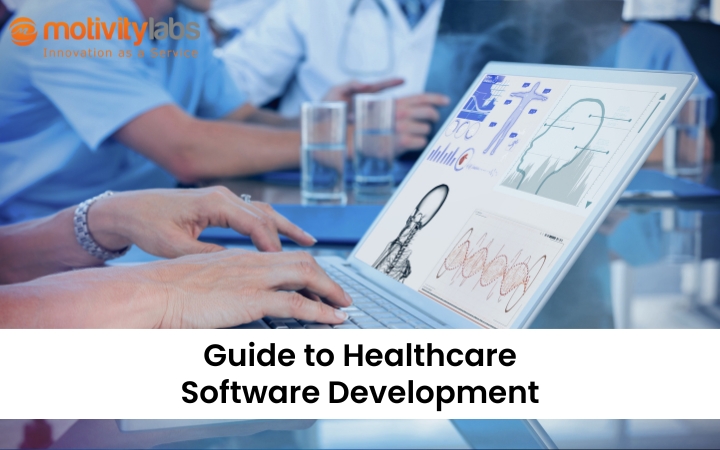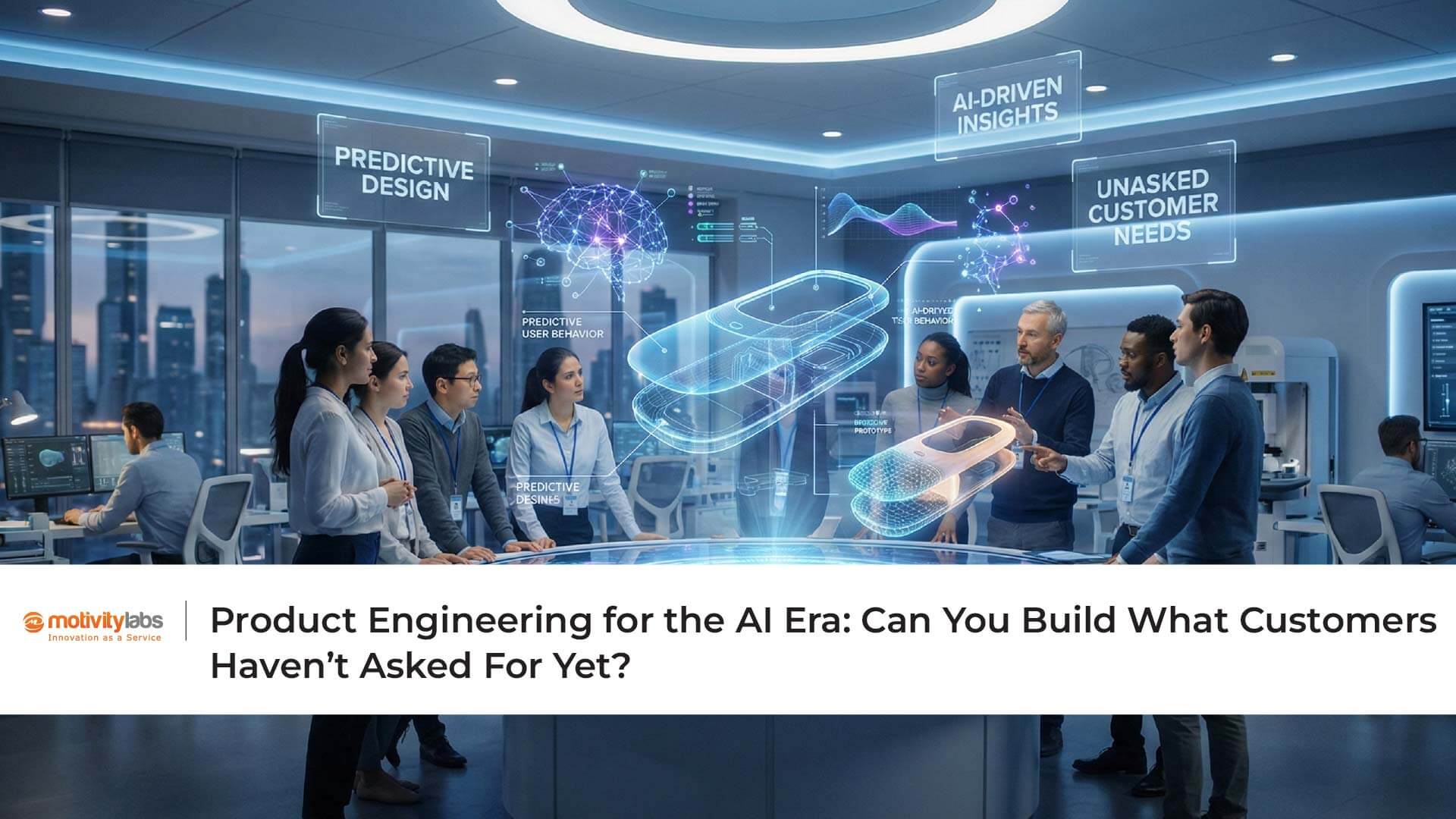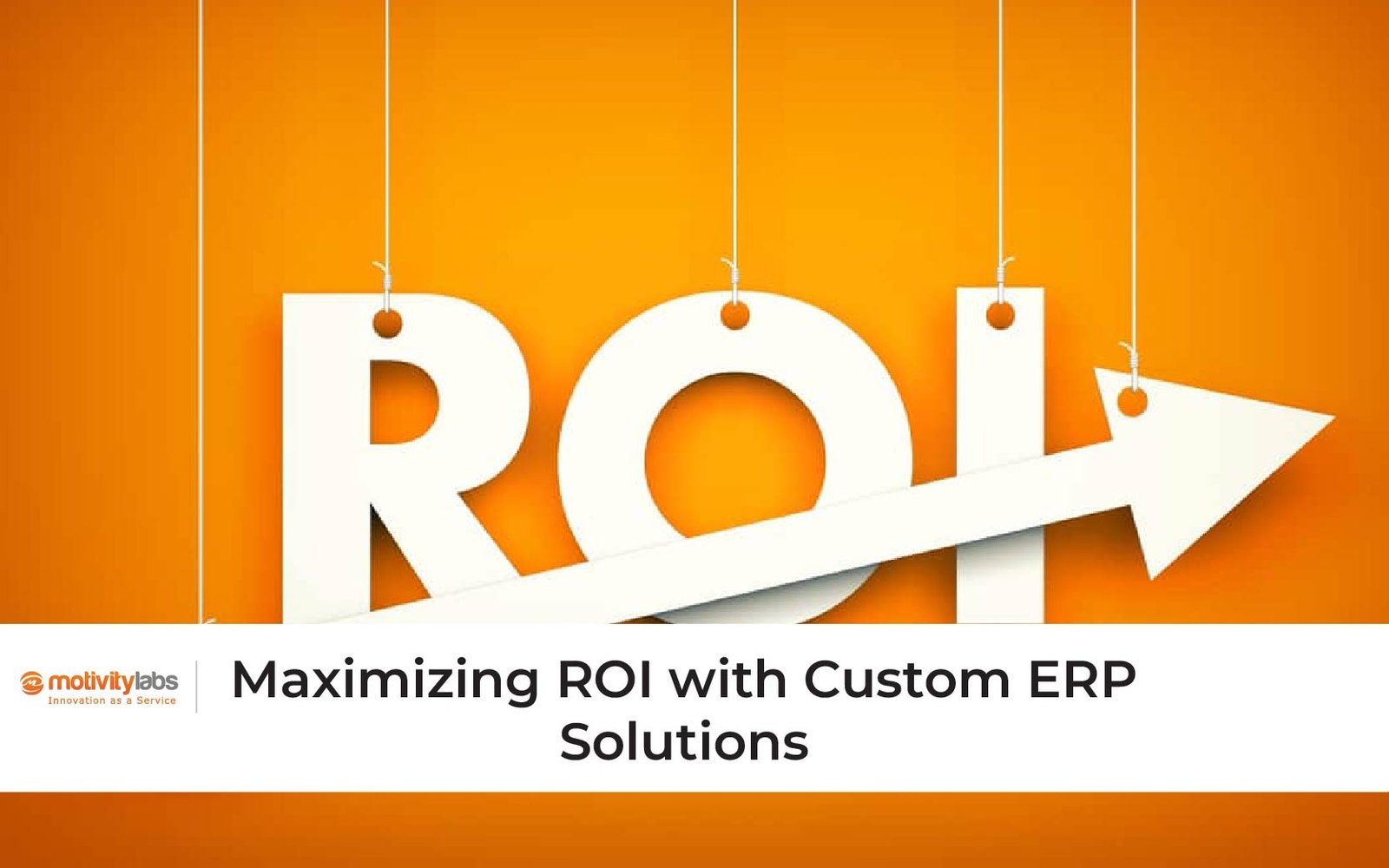What is Healthcare Software Development?
Healthcare software development is the process of designing, building, and implementing software solutions specifically tailored to meet the unique needs of the healthcare industry. These solutions aim to streamline operations, improve patient outcomes, and drive innovation in areas such as electronic health records (EHRs), telemedicine, and predictive analytics.
As a IT services company we understand that healthcare software development is a game-changer in the industry and plays a huge role in excellent patient care. As healthcare organizations strive to improve their operational efficiency, data management, and regulatory compliance, our experts are leading this digital transformation in healthcare and pharma software development.
The Catalysts of Change
Healthcare software development solutions have been responsible for the tremendous change witnessed across all aspects of care provision. Electronic Health Records (EHRs) enable clinicians to quickly manage data by providing essential information about patients. Patients can now seek medical help from virtually anywhere through telemedicine platforms, which are part of healthcare app development software solutions. Practice management systems automate administrative tasks which enhance efficiency and reduce errors. Additionally, integration of Artificial Intelligence (AI) and Machine Learning (ML) brings in predictive analytics, intelligent decision support as well as advanced diagnostic capabilities in healthcare software development.
The global healthcare software development market is expected to grow significantly in the coming years, driven by factors such as the increasing adoption of electronic health records, the rise of telemedicine, and the growing need for data-driven decision making in healthcare.
According to a report by MarketsandMarkets, the global healthcare IT market is expected to grow from $250.9 billion in 2021 to $390.7 billion by 2026, at a CAGR of 9.6% during the forecast period.
Tangible Benefits for Healthcare Organizations and Patients
The adoption of software development services for healthcare results in quantifiable benefits to both patients and healthcare organizations:
1. Enhanced Patient Care: Doctors can provide individualized treatment because they have immediate access to complete patient histories based on accurate records
2. Operational Efficiency: Automated processes are used to minimize manual labor, optimize resource utilization, and reduce costly errors to result in significant cost savings.
3. Regulatory Compliance: Strong software development services for healthcare systems ensure compliance with stringent regulations such as HIPAA; thus mitigating legal risks and promoting trust among clients.
4. Data-Driven Insights: By analyzing real-time data, healthcare organizations can recognize patterns of behavior that can help them predict future problems and make decisions that improve health outcomes on a continuous basis.
Popular Types of Healthcare Software Solutions
There are many different types of healthcare software solutions available, each designed to address specific challenges and needs within the industry. Some of the most popular types include:
- Electronic Health Records (EHRs): EHRs are digital versions of a patient’s medical history, allowing healthcare providers to access and manage patient data more efficiently.
- Practice Management Software: Practice management software helps healthcare organizations streamline administrative tasks such as scheduling, billing, and patient communication.
- Telemedicine Software: Telemedicine software enables healthcare providers to deliver care remotely, improving access to healthcare services for patients in remote or underserved areas.
- Clinical Decision Support Systems (CDSS): CDSS use artificial intelligence and machine learning algorithms to provide healthcare providers with real-time recommendations and insights based on patient data and evidence-based guidelines.
- Pharmacy Management Software: Pharmacy management software helps pharmacists manage medication inventory, track prescriptions, and ensure patient safety.

The Role of Information Technology in Healthcare Software
Information technology (IT) plays a crucial role in the development and implementation of healthcare software solutions. IT professionals are responsible for designing and building the underlying infrastructure that supports these solutions, including servers, databases, and networks.
In addition to technical expertise, IT professionals in the healthcare industry must also have a strong understanding of healthcare regulations and compliance requirements, such as the Health Insurance Portability and Accountability Act (HIPAA) in the United States.
Why Agile is Important in Healthcare Software Development
The healthcare industry is constantly evolving, with new regulations, technologies, and patient demands emerging regularly. Agile software development methodologies, which emphasize flexibility, collaboration, and rapid iteration, are crucial in this fast-paced environment. By adopting an Agile approach, healthcare software development teams can quickly adapt to changing requirements, deliver value to stakeholders faster, and ensure that the final product meets the needs of healthcare providers and patients.
In an industry characterized by constant change, adoption of agile methodologies is indispensable for healthcare software development. Agile principles promote cooperation, adaptability and swift adjustments so that organizations can keep up with changing technical requirements or regulations and demands of patients. The iterative approach of Agile ensures continuous alignment between software being developed and business objectives.
Which SDLC Model is Best for a Hospital Management System?
When developing a hospital management system, the choice of software development life cycle (SDLC) model is crucial. While there is no one-size-fits-all solution, the Waterfall model may be a good starting point for large-scale projects with well-defined requirements and a clear timeline.
However, as mentioned earlier, the healthcare industry is constantly evolving, and the Waterfall model may not be flexible enough to accommodate changing requirements. In such cases, an Agile approach, such as Scrum or Kanban, may be more suitable, as it allows for iterative development and rapid adaptation to new challenges.
Why custom healthcare software development is important
While off-the-shelf software solutions may seem like a cost-effective option, they often fail to address the unique challenges and requirements of individual healthcare organizations. Custom healthcare software development allows organizations to tailor their solutions to their specific workflows, data management needs, and patient populations. This level of customization not only improves efficiency but also enhances patient care and satisfaction.
While off-the-shelf software may serve some basic needs, Motivity Labs, a healthcare and pharma software development company recognizes the significance of custom healthcare app development software solutions in aligning solutions with organizational requirements. Our custom medical software development solutions easily integrate with existing systems, fit into unique workflows, support special features where necessary while ensuring a perfect fit for your organization’s needs.
Emerging Trends and Future Outlook
The healthcare landscape is constantly evolving, with new technologies and trends emerging regularly. Some of the current trends include the rise of telemedicine, the increasing use of predictive analytics to identify high-risk patients and prevent adverse events, and the growing importance of data security and patient privacy.
Looking ahead, experts predict that the future of healthcare software development will be shaped by advancements in artificial intelligence (AI) and machine learning (ML). These technologies have the potential to revolutionize areas such as medical imaging analysis, drug discovery, and personalized treatment planning.
As a healthcare software solutions, we remain at the forefront of emerging trends and future visions in healthcare and pharma software development
1. Cloud Computing: This technology allows cheap data storage, remote work, and expansion of healthcare teams’ ability to share information in real time.
2. Connected Medical Devices: The incorporation of medical devices and body sensors enhances instant flow of information, monitoring of the patients remotely as well as personalization of health care.
3. System Interoperability: Easy sharing of data between different health care systems encourages cooperation, consistency, and informed decision-making.
4. Generative AI: In addition to strict testing and ethics compliance, this AI (GenAI) may be useful in conducting medical research, developing drugs or even creating personalized treatment approaches for patients.
What is the Future of GenAI in Healthcare?

Generative AI (GenAI) is a rapidly advancing field of artificial intelligence that has the potential to transform healthcare software development. By leveraging machine learning algorithms, GenAI can generate new data, such as images, text, or even molecules, based on patterns learned from existing data. In the context of healthcare, GenAI is being applied to a wide range of applications, from drug discovery and clinical trial optimization to medical imaging analysis and patient risk prediction.
As GenAI continues to evolve, it is expected to play an increasingly important role in healthcare software development. By automating tasks such as data analysis, patient risk prediction, and treatment planning, GenAI in healthcare and pharma organizations deliver more personalized and effective care while reducing costs and improving efficiency.
We as a healthcare and pharma software development company, understand the potential that generative AI has to revolutionize medicine. While protecting patient health and privacy through extensive testing algorithms and adherence to ethical standards is essential before introducing it into clinical practice, GenAI offers vast prospects in various aspects. From hastening medical research as well as drug invention processes to individualized treatment schemes and more efficient teaching methodologies in medicine, GenAI represents a leading edge where innovation is currently ongoing within our team healthcare software development.
Comprehensive Healthcare Software Solutions
Motivity Labs offers a comprehensive suite of healthcare app development software solutions tailored to the unique needs of our clients:
1. EHR System: Electronic medical records (EMRs) are computerized and centralized systems that bring together patients’ information for doctors to use in making decisions regarding care plans.
2. PMS Systems: These platforms automate tasks linked with administration like appointments timetable, invoices, and patient files management thereby enhancing efficiency in running of the healthcare facility.
3. Telemedicine Platforms: Telemedicine apps facilitate remote consultations, remote patient monitoring and virtual care delivery hence increasing accessibility and convenience for patients.
4. CDSS Systems: Clinical decision-support systems (CDSSs) extract data analysis from AI to provide healthcare professionals with evidence-based recommendations they can rely on when diagnosing or treating their patients.
5. Medical Imaging Software: These software development services for healthcare tools facilitate acquisition, storage, retrieval, and manipulation of medical photographic images such as x-rays, CT scans and Magnetic Resonance Images (MRI).
Partnering for Success
Successful healthcare software development requires collaboration and industry expertise, and we at Motivity Labs, a premier healthcare software development services company, understand this. This is made possible by our devoted teams that combine healthcare domain experts, medical professionals, and experienced software developers to produce customized solutions that meet the specific needs of our customers. We have a track record delivering first-class software development services for healthcare, a commitment to innovation, regulatory compliance as well as improving patient care.
We are in the lead in healthcare and pharma software development as it continues to shift from being inefficient to more efficient models while enhancing patient experiences and shaping the future of care delivery. We invite you to partner with us so as to tap into all benefits of digital transformation for healthcare and pharma.



